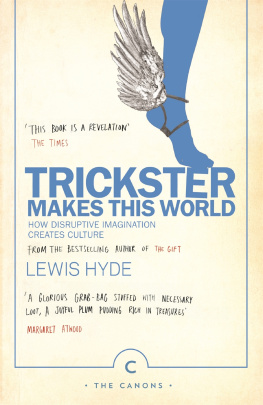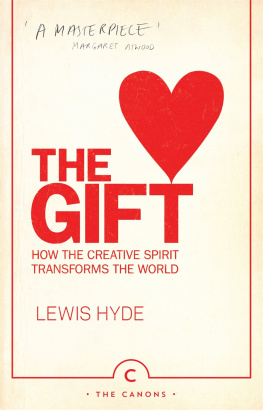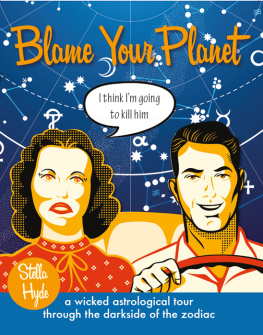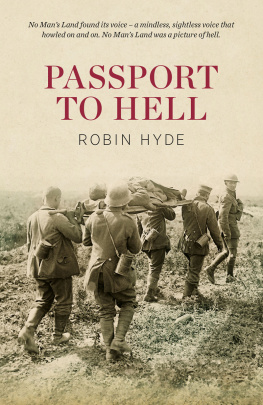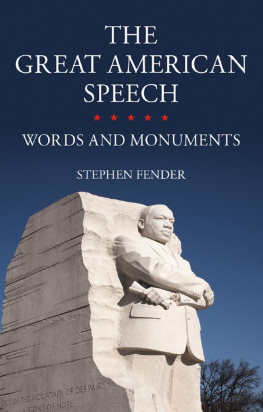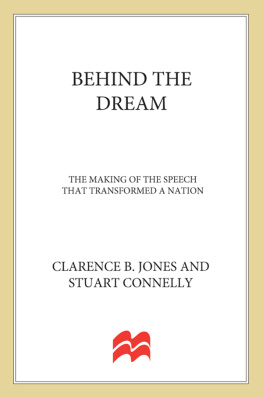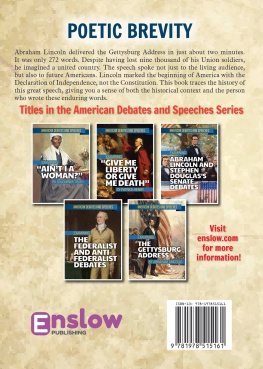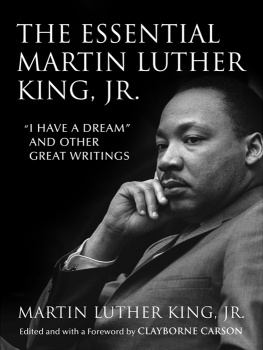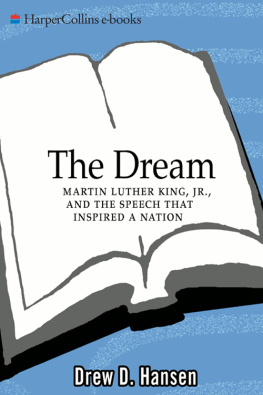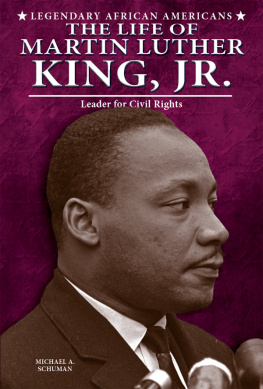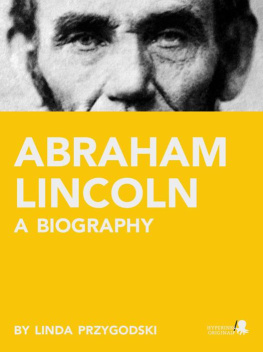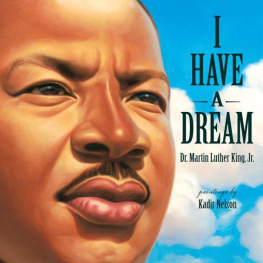COMMON AS AIR

FOR PATSY
AND
FOR MY FATHER,
W. LEWIS HYDE (1919-2003),
WHO TAUGHT ME ABOUT DOLLONDS CASE
Every Free-Man... shall have... the Honey that is found within his Woods.
THE GREAT CHARTER OF THE FOREST (1217)
COMMON AS AIR

The argument: Even as market triumphalists work to extend the range of private property, a movement has arisen to protect the many things best held in common.
Most people act as if they had a private understanding, but in fact the Logos is common to all.
HERACLITUS
THEFT IS THEFT
Some years ago in Thailand, when drug companies priced AIDS medications at an annual cost exceeding the average Thai income, the government stepped in and set more affordable rates. In response, the pharmaceutical industry called the move illegal and ill conceived, claiming it undermined the incentive to conduct the very research that produces AIDS drugs in the first place.
During the 2008 presidential campaign, Fox News insisted that YouTube remove from its site a John McCain commercial that used unauthorized video from a Fox-moderated debate. When the McCain campaign complained about suppression of political speech, YouTube replied that copyright law gave them no choice, though they look[ed] forward to working with Senator (or President) McCain to improve the law.
In 2000, a British scholar published a 1, 300-page anthology of modern Irish writing, twenty-four pages of which were devoted to James Joyce. Asked for permission, the Joyce estate insisted on a fee of 7,000. When the editor wrote saying he couldnt afford such a steep fee, the estate raised the price to 7,500, then changed its mind and refused permission outright. Ten years later, this anthology still lists Joyces work in the table of contents, but pages 323 through 346 are cut from the volume.
Each of these stories revolves around what we now call intellectual property, and as modern as these cases are, the question behind them is very old: in what sense can someone own, and therefore control other peoples access to, a work of fiction or a public speech or the ideas behind a drug? The literary part of this puzzle has, by itself, a long history. Three hundred years ago in England, writers and publishers engaged in a spirited, fifty-year debate over whether or not there could even exist such a thing as literary property.
Publishers in Scotland, for example, thought it made no sense for their competitors in London to claim exclusive ownership of, say, a book on oratory by Cicero or a popular poem like James Thomsons The Seasons. As one aggrieved Scot tried to explain, if a writer were to keep his Lucubrations to himself, then perhaps he may be said to have a Property in his Noddle. But once he prints... these Lucubrations, and once someone else pays for the book and reads it, the Person who buys has just the same Property that the Author had.
To lucubrate: surely this is a key forgotten verb of the European Enlightenment, the root (lux) being light itself and the action indicated being the labor of studying long into the night by the flame of a lamp. Lucubrations are the mental harvest of midnight oil, and the only way to make them property in the usual sense (this is mine; you keep out) would be to keep them locked inside the skull, or so this Scottish publisher believed against the protestations of his London rivals.
Centuries have passed since arguments of this sort first appeared, but the years have neither laid them to rest nor brought much clarity to the terms of engagement. Intellectual property is the phrase now used to denote ownership of art and ideas, but what exactly does it mean? Does it make sense, to begin with, to say that intellect is the source of the properties in question? A novel like Ulysses, the know-how for making antiviral drugs, Martin Luther King, Jr.s Dream speech, the poems of Rimbaud, Andy Warhol screen prints, Mississippi Delta blues, the source code for electronic voting machines: who could name the range of human powers and historical conditions that attends such creations? All that we make and do is shaped by the communities and traditions that contain us, not to mention by money, power, politics, and luck. And even should the artist or scientist think she has extracted herself from the world to stand alone in the studio, a tremendous array of faculties and mind-states may well attend her creativity.
There is intellect, of course, but also imagination, intuition, sagacity, persistence, prudence, fantasy, lust, humor, sympathy, serendipity, will, prayer, grief, courage, visual acuity, ambition, guesswork, mother wit, memory, delight, vitality, venality, kindness, generosity, fortitude, fear, awe, compassion, surrender, sincerity, humility, and the ability to integrate diametrically opposed states of mind into harmonious wholes... We would need quite a few new categories to fully map this territorydream property, courage property, grief propertyand even if we had that list, only half the problem would have been addressed.
For what exactly is property? The oil in a lamp, the light it sheds, the midnight scholars flash of insight: can each of these be property and, if so, by what ample definition of the term?
I will have more to say about these questions in the chapter that follows; here Ill simply acknowledge that my own position is not as extreme as that of the Scottish publisher. I believe there can be property in all sorts of lucubrations and, in a rightly limited form, usefully so. The very first copyright law (Britains 1710 Statute of Anne) gave the Authors and Proprietors of books exclusive rights to their works for as long as twenty-eight years, provided that they paid a sixpenny fee and listed their works in the Register-Book of the Company of Stationers. For most of the twentieth century, the law in the United States was much the same: rights lasted twenty-eight years (and could be renewed once, if the owner cared) provided that works were duly registered with the copyright office. Both of these seem to me to offer sensible ways to manage the intellectual property found in books.
I should apparently underscore this point before going on, as a number of readers missed it when the book first came out. Some faulted me for having copyrighted my own work in apparent contradiction of its defense of cultural commons (Oh, the irony, said a post on the NPR website); others complained that I seemed not to care about copyright at all, that I was out to deprive artists of the right to profit from their work (that from a review in The Nation). Clearly I should be more emphatic: Authors and publishers deserve to profit from the work they create and bring to the public. This is not an anti-copyright book. Copyright is a useful tool of public policy; the problem, as we shall see, is to name the policy ends toward which it is directed and then design it to serve them. Because at the moment the reach of copyright is so wildly out of balance, the emphasis in this book is on access rather than ownership, that is true, but that doesnt mean I am out to impoverish authors, myself included. As for how a better balance might be achieved, there are many suggestions in the final chapter, and I have added an afterword to this edition outlining two plausible interventions, neither of which would abolish copyright.
As I was saying, it makes sense to give the intellectual property in books a twenty-eight-year copyright, even a renewable one. That said, part of the task of this book is to show the degree to which a phrase like intellectual property serves simply to obscure a long history of philosophical, legal, and ethical argument about what sort of property lies under that heading and, once thats decided, what rightly limited should mean and why a limit to ownership might arise in the first place. Knowing the history of that debate not just well enough to follow the argument but well enough to
Next page

